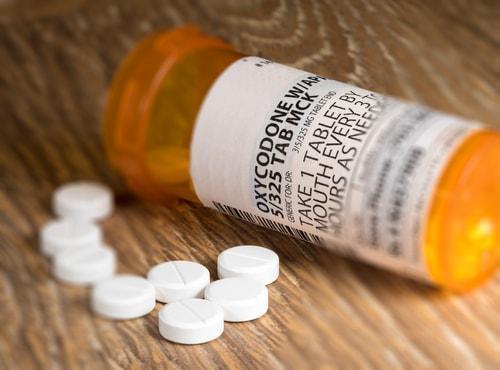Governor Malloy Continues Battle Against Opioid Epidemic
 The state of Connecticut is presently on pace to set a tragic record of more than 1,000 opioid-related deaths in 2017. If things continue on their current pace, 2017 will surpass last year’s record of 917 by a rather large margin. According to the Office of the Chief Medical Examiner, an average of nearly three residents are dying from accidental drug overdoses every single day. While the word is not one that should be used lightly, but experts throughout the state and across the nation have rightfully identified the country’s opioid problem as a true "epidemic."
The state of Connecticut is presently on pace to set a tragic record of more than 1,000 opioid-related deaths in 2017. If things continue on their current pace, 2017 will surpass last year’s record of 917 by a rather large margin. According to the Office of the Chief Medical Examiner, an average of nearly three residents are dying from accidental drug overdoses every single day. While the word is not one that should be used lightly, but experts throughout the state and across the nation have rightfully identified the country’s opioid problem as a true "epidemic."
Connecticut Governor Dannell P. Malloy has refused to sit quietly and let the issue go unaddressed. In fact, last month, he signed legislation for the fourth consecutive year aimed at curbing the crisis. This year’s new law may not be as far-reaching as those from the previous two years, it is a step in the right direction and was unanimously passed in both chambers of the state legislature.
A Progression of New Laws
Many experts believe that a large part of the nation’s opioid problem is overuse by the medical community. Doctors prescribe powerful, easily abused opioids as painkillers with little or no direction for patients on how to deal with possible addiction or overdose.
In 2015, Governor Malloy put forward and signed a bill that required medical professionals to report every opioid prescription to Connecticut’s Prescription Monitoring Program within 24 hours—a drastic reduction from the previous seven-day reporting deadline. That bill also gave doctors and patients access to pharmacist-prescribed naloxone—a medication that can help reverse the effects of an overdose.
Last year, the governor introduced and signed a measure requiring EMTs and other first responders to carry drugs like naloxone. The same bill also limited first-time opioid prescriptions to seven days in most cases and adjusted the monitoring program to help doctors identify patients who might be likely to abuse opioids.
A few weeks ago, Governor Malloy continued his push to reduce opioid-related deaths by signing another bill that he introduced. This year’s version increases state oversight of opioid prescriptions and mandates that particular individual and group health insurance plans must cover medically necessary, inpatient detoxification treatments.
"Good Samaritan" Laws
As with any drug-related concern, the opioid problem also includes a criminal element, as the black market sale and illicit possession of prescription medications could be subject to criminal prosecution. Sometimes, however, common sense must prevail, and saving a person’s life is more important than criminal consequences.
For this reason, Connecticut lawmakers passed what has become known as a "Good Samaritan" law in 2011. The law provides that a person who calls 911 for another suffering from a possible overdose will not be subject to prosecution for the possession of drugs or drug paraphernalia in relationship to that call. The amnesty applies to the victim and the caller only, and other charges or investigations already in progress are not affected.
Call Us Today
If you or someone you love is facing criminal charges in connection with opioids, including prescription drugs or heroin, contact an experienced criminal defense attorney in Connecticut. Our skilled team will work with you in ensuring that your rights are fully protected, no matter how serious the charges against you may be. Call 860-290-8690 for a free initial consultation today.
Sources:
https://ctmirror.org/2017/08/31/opioid-crisis-deepens-as-malloy-again-signs-legislation-to-curb-it/
http://www.ct.gov/dph/cwp/view.asp?a=3137&q=567438






